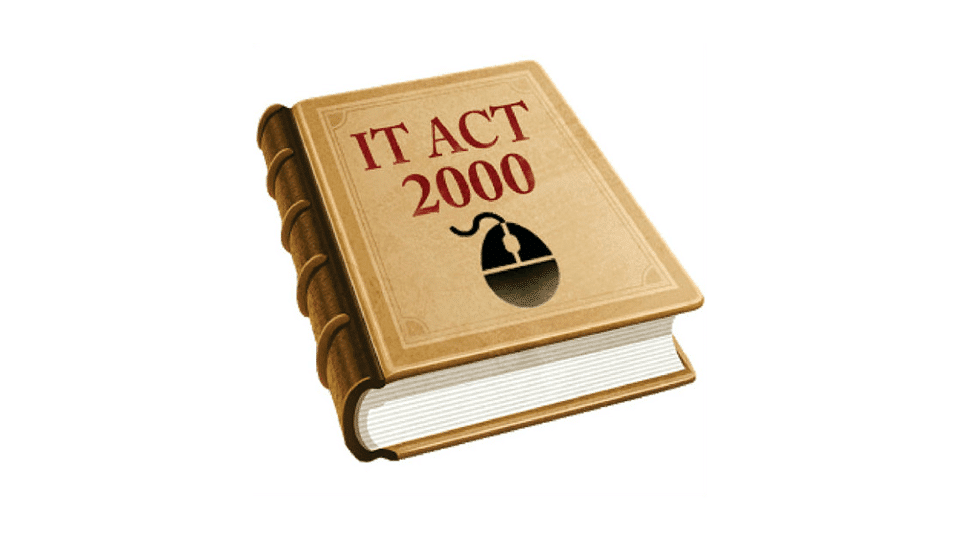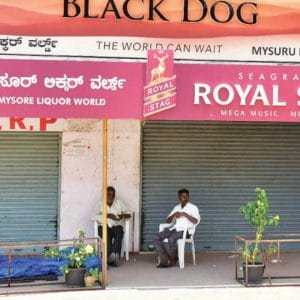
Musings on Information Technology Act, 2000 and the Supreme Court
I often shudder to think what would happen to our Right to Free Speech and Expression if Courts were not there to rein in the governments that become autocratic.
Before the Liberalisation and booming Information Technology sector, there was our Constitution giving us protection for our Right to Free Speech and Expression under Article 19(1)a. But under Article 19(2) reasonable restrictions are imposed on this Free Speech and Expression. This restriction is to protect:
(1) The Sovereignty and Integrity of India.
(2) To Ensure the Security of State.
(3) To Maintain Friendly Relations with Foreign States.
(4) To Maintain Public Order.
(5) To Maintain Public Decency.
(6) To Maintain Public Morality.
(7) To Safeguard Courts from Contempt and Defamation.
(8) To Safeguard Incitement to Commit an Offence.
Three concepts come into government’s concern while dealing with cases of violation or misuse of Right to Speech and Expression: (i) Discussion, (ii) Advocacy, (iii) Incitement.
Now Article 19(1)a gives ample opportunity for a citizen to discuss any subject and advocate any cause through speech and expression — represented by speech, writing or pictorials, including cartoons. But that freedom stops the moment it becomes cause for incitement to violence — rioting, taking to arms, militancy or well, even stone-pelting. Let it be.
Now let me turn to Social Media which is being reined in by the IT Act of 2000. However, this Act failed to check misuse of Freedom of Speech and Expression when people started sending, by means of a computer resource or the electronic Social Media — WhatsApp, Facebook, Twitter etc. — information that is grossly abusive, fake (as Donald Trump is never tired of saying), false, intended to annoy or inconvenience, deceive or to mislead the addressee about the origin of such messages. Examples of serious cyber crimes of these kinds are video voyeurism, identity theft, breach of confidentiality etc.
Therefore, the government decided to amend the IT Act 2000 with a more stringent Section to handle such offenders. As a result, Section 66A was introduced as an amendment to the IT Act 2000 on 22nd December 2008 rather hurriedly (within a period of half-an-hour) and notified in 2009. But did it help? Criminals are criminals.
The government which thought this Section 66A being draconian in nature would deter the culprits did not serve the purpose. One after another, many incidents of abuse of Freedom of Speech and Expression, as perceived by the government, began to occur. For example:
- Professor Ambikesh Mahapatra from the Jadavpur University, in December 2012, uploaded a cartoon against Mamata Bannerji, showing her discussing with her Lieutenant Mukul Roy as to how to get rid of a certain Minister. This incident irked the party to the extent to invoke Section 66A, send Policemen to his house and assault him. He was sought to be charged with inter alia, defamation, insulting modesty of women, cyber crimes. Later, the Calcutta High Court pronounced an order in his favour upholding his rights.
- Aseem Trivedi, a Kanpur-based cartoonist, put up caricatures of an ineffective Parliament which apparently insulted the National Emblem under the State Emblem Act, 2005. Trivedi’s stand was that by suppression of art, corruption would not stand suppressed.
Similarly, Mohan Sharma and KJV Rao were arrested by Mumbai Police for insulting the National Flag and for making comments against the Prime Minister.
In another instance, a CPI-M worker, Rajneesh Kumar was also found to be insulting the Prime Minister by posting “abusive” content.
- Case against Kanwal Bharti for his support to Durga Shakti Nagpal in Uttar Pradesh. The sentiments of the Uttar Pradesh Government were hurt to the extent that he was straight away dragged out of his house by the Policemen, without even giving him time to change.
- The students of Sree Krishna College, popularly called the Crossword Puzzle Case, where 9 students were arrested for a crossword puzzle in a magazine titled “Name” for having used objectionable terminology against Narendra Modi and some other politicians like Shashi Tharoor.
- The trigger for the Public Interest Litigation (PIL) filed by a law student Shreya Singhal is that of the two girls in Thane, who wrote against the shut down of Mumbai on the demise of Bal Thackeray in 2012. It’s amusing that one of them was arrested for ‘liking’ the post.
And in all these cases, Section 66A was invoked and ‘culprits’ arrested and cases filed. Further, Section 69A gave power to State to issue directions for BLOCKING PUBLIC ACCESS of any information through computer resource, e-media.
Many cried foul. They said this was abuse of Section 66A. A series of writ under Article 32 of the Constitution of India, 1949 were filed. However, Supreme Court upheld Section 69A and the Blocking Rules, 2009 and found them devoid of any infirmities as that of Section 66A. Which is why, we find the Section 69A being invoked in J&K whenever militancy or terrorism gets aggravated through social media incitements and messages. It was only in the case of Section 66A the Supreme Court found it ambiguous, vague, hence deserved to be dismissed. “A vague statute tends to widen the spectrum to catch more number of offenders which will definitely breach the principle of natural justice.”
Therefore, narrow tailoring of a penal statute is a must. Since it is not there, the removal of the Section itself became a compulsion for the Apex Court. However, the happy news for the country is that the government continues to have substantial powers of controlling the content of the Act.
One must admit that much of the problems come from the poor drafting of our statute and amendments. The Legislative Drafting (Bills) must be accorded much more precision than mere ‘lifting’ bodily from the foreign statute. Only then the law will become relevant, fair and just, to avoid PIL or other itigation as happened with Section 66A of IT Act, 2000.
Tailpiece: In America, the Right to Freedom of Expression is as close as it gets to absolute: You cannot be arrested even for such inflammatory acts as burning the National Flag or a Holy Book.
But in the US, it does not happen routinely or for revenge or to provoke another community. It may happen for fun or prove a point. Much depends on peoples’ sense of reason.
In Europe, the period of Renaissance, the Reformation and the Age of Enlightenment saw decriminalisation of blasphemy which was considered heinous crime attracting death penalty. But the Middle-East and some SE Asian countries seem to be still in the age of Darkness.
[NOTE: Sourced in parts from a handbook published by Bombay Chartered Accountants’ Society].
e-mail: [email protected]








Recent Comments